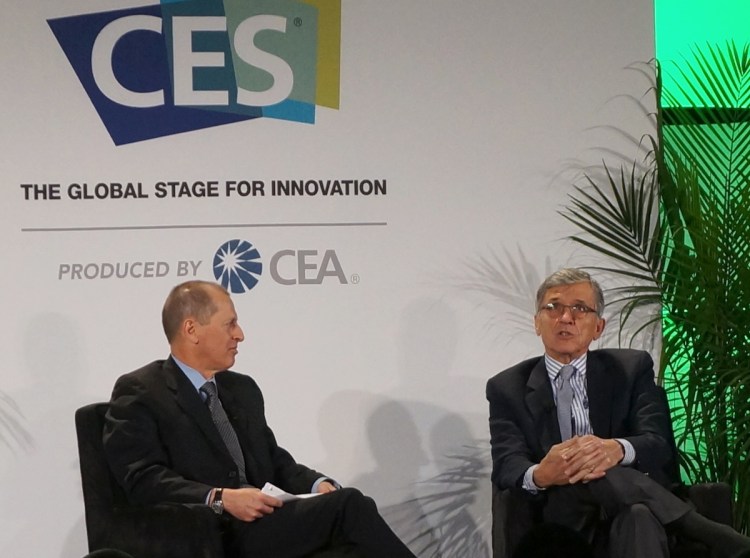After yesterday’s appeals court decision that rendered the Federal Communication Commission’s net neutrality rules useless against Internet providers like Verizon, the country is up in arms about whether the concept of an open Internet will remain intact.
Well, newly appointed FCC chairman Tom Wheeler is only fanning the flames of the fire with repeatedly vague responses regarding net neutrality. People are up in arms because Wheeler doesn’t view net neutrality as a communication issue, but rather a network (technical) issue, which aligns with yesterday’s court decision.
“The government, in the form of the FCC, is not going to take over the Internet,” Wheeler wrote in a blog post published late Tuesday. “It is not going to dictate the architecture of the Internet. It is not going to do anything that gratuitously interferes with the organic evolution of the Internet in response to developments in technology, business models, and consumer behavior.”
Prior to yesterday’s ruling, net neutrality was a set of rules that barred Internet providers from prioritizing traffic from a single source over all the others. For instance, Verizon was previously unable to offer, say a particular video provider, with an option of delivering their service more reliably (no buffering video, at a higher resolution) for a fee. The reason it was unable to do this, theoretically, is because the overall traffic delivered over the Internet would then be slower. (Think of it like a company paying the city to allow their employees to board public transportation first before anyone else was admitted — the employees of that particular company would have a shorter commute to work, but everyone else would be waiting longer to get to their destination.) Also, companies that could afford to pay would have a chance at success, while smaller companies/services/organizations would get left behind in a sort of lower class Internet — eliminating the notion that all traffic is equal.
It’s pretty clear that Wheeler doesn’t agree with the logic that prioritizing traffic would lead to an unequal Internet or a lack of competition for businesses online. In fact, he seems to think that allowing the FCC to prevent companies like Verizon from using traffic prioritization as part of its strategy might actually be detrimental to the evolution of the Internet itself.
“It is important not to prohibit or inhibit conduct that is efficiency producing and competition enhancing,” he wrote. “It also is important not to permit conduct that reduces efficiency, competition and utility, including the values that go beyond the material.”
That said, I can understand Wheeler’s thought process. [Note: That doesn’t mean I agree with it.]
First off, the only way to prove that treating traffic unequally is bad for the open Internet is if we can point to examples of it happening by broadband providers. Second, if FCC meddling of Internet traffic delivery does prevent ISPs from organically evolving the Internet, it would become apparent at some point (probably well into the future). When that happens it could cause congress to enact new legislation that would almost certainly limit the FCC’s ability to take action against broadband network operator practices that are anti-competitive.
“How we encourage economic growth using these [broadband] networks is crucial. And the key to that is competition, competition, competition,” Wheeler said during an event at CES 2014 last week. “Because competition is so much better than even the best, wisest, well-intentioned policy maker.”
Wheeler assured skeptics in his post yesterday that the FCC would remain vigilant of broadband providers or market conditions that were anti-competitive, but would do so “cautiously” and on a case-by-case basis. That’s asking net neutrality advocates to take a pretty big leap of faith — one that trusts the FCC will be able to justly identify and reel in the likes of Comcast and Verizon should their practices become woefully closed and anti-competitive.
VentureBeat's mission is to be a digital town square for technical decision-makers to gain knowledge about transformative enterprise technology and transact. Learn More

